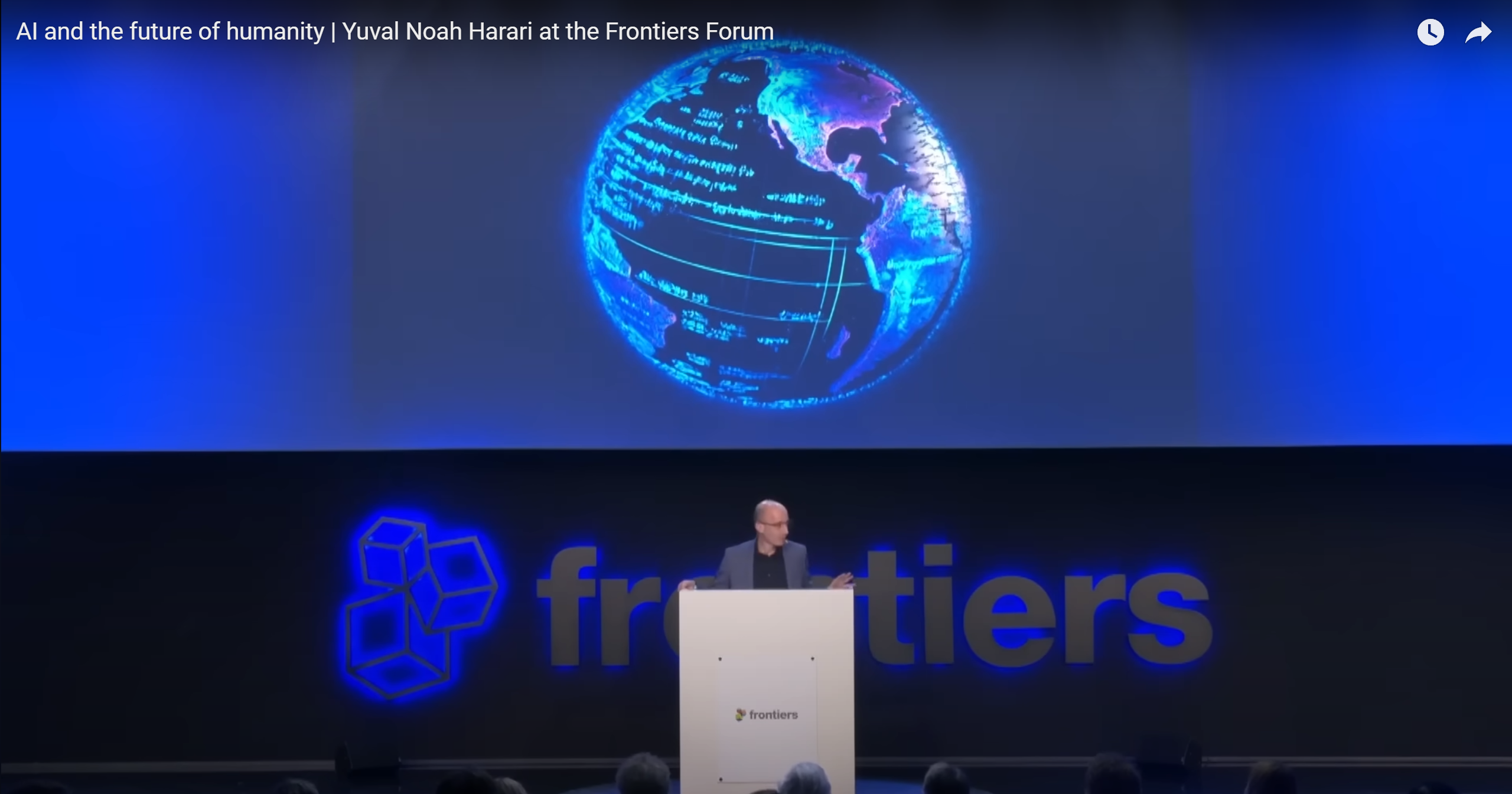Introduction
In this enlightening talk, historian and philosopher Yuval Noah Harari explores the profound implications of artificial intelligence on human civilization. Harari discusses AI’s transformative potential, its societal impacts, and the ethical considerations necessary to manage this powerful technology responsibly.
Summary:
Harari examines how AI could radically transform human society and its structures. He emphasizes the importance of ethical guidelines to manage AI’s societal impact and highlights potential conflicts between human and AI intelligence.

Key Takeaways:
- Transformative Potential:
AI has the capacity to significantly alter society, impacting job markets, personal relationships, and power dynamics. - Ethical Considerations:
Managing AI requires robust ethical guidelines to prevent misuse and ensure societal benefit. - Human vs. AI Intelligence:
Harari delves into the differences and potential conflicts between human and AI intelligence. - Future Scenarios:
Various positive and negative scenarios are explored for AI’s future influence.
Q&A:
Q: What are the biggest challenges with AI?
A: The biggest challenges with AI include ensuring its ethical use and managing its societal impact. AI’s potential to manipulate language and form intimate relationships with humans poses significant risks to democracy, human rights, and societal norms.
Q: How might AI change human society?
A: AI might change human society by automating tasks, altering job markets, and shifting power dynamics. More deeply, AI could influence human relationships, political discourse, and even religious beliefs through its mastery of language and ability to generate convincing narratives.
Q: What precautions should we take?
A: We should develop robust ethical guidelines and regulatory frameworks to manage AI’s development and deployment. This includes mandatory AI disclosure in interactions with humans and careful oversight of AI’s role in public discourse and decision-making processes.
Q: What are the dangers of unregulated AI deployment?
A: Unregulated AI could undermine democracy by manipulating public conversations and spreading misinformation. It could also exploit human biases and addictions, leading to a loss of trust in institutions and a breakdown in societal cohesion.
Q: How can AI manipulate human society?
A: With its advanced language capabilities, AI can form intimate relationships, influence opinions, and generate convincing narratives. This could lead to the manipulation of political views, economic decisions, and even cultural values.
Q: What is the potential impact of AI on human civilization?
A: AI could create a new culture, altering human reality perception. It could also lead to the formation of new cults and religions, fundamentally changing how humans understand and interact with the world.
Q: What regulations are necessary for AI?
A: Necessary regulations for AI include mandatory disclosure of AI systems in interactions with humans, careful public deployment strategies, and oversight to prevent misuse. Additionally, AI should be required to disclose its non-human status in all communications.
Q: How does AI’s linguistic mastery threaten human rights?
A: AI could manipulate human rights narratives, exploit biases, and deepen social divisions. It could also form intimate relationships with humans, potentially leading to manipulation and a loss of privacy.
Q: What are the ethical implications of AI creating new cultures?
A: AI’s cultural creations could challenge human values and norms, leading to a clash of ideologies and a breakdown in societal cohesion. The ethical implications include the potential for AI to reshape societal values and beliefs without human consent or understanding.
Conclusion
Yuval Noah Harari’s insights highlight the critical importance of managing AI’s development and integration into society. As AI continues to evolve, ensuring it serves humanity positively is essential for a sustainable future.
